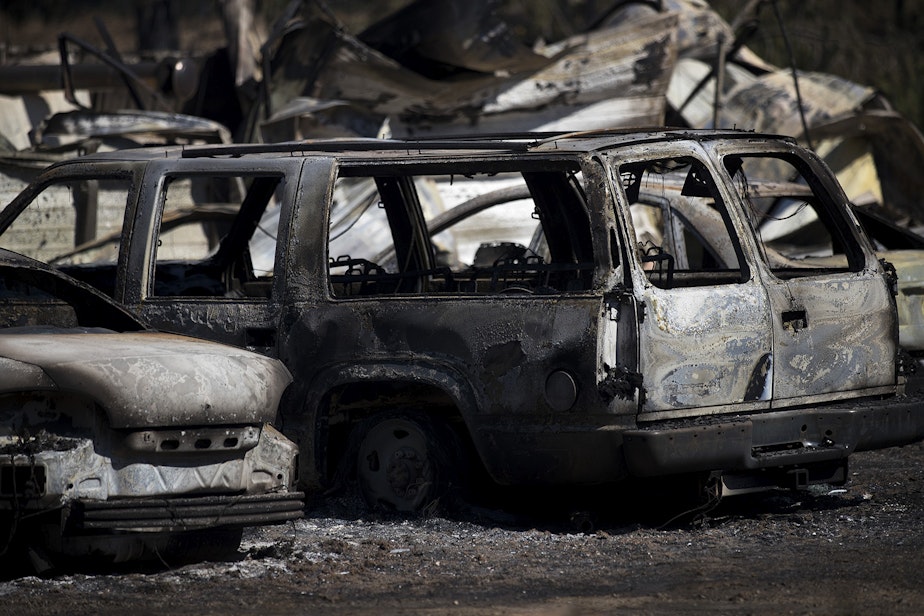Like wildfire: how misinformation spreads during a crisis

When Washington and Oregon's historic wildfires began sweeping over the state, rumors of their origin began circulating online. Was it anti-fascists? The Proud Boys? Since the beginning, officials have faced an uphill battle in controlling fact vs. fiction.
Crises are perfect opportunities for misinformation. News spreads quickly while reports are filed and investigated, leaving onlookers in the dark while they search for reassurance online. Officials across the Pacific North West have confirmed the latest round of conspiracies surrounding the PNW fires to be false, and even the FBI has stepped in to confirm their findings. As experts are seeing, it's harder to spread the truth once a lie has taken root – especially in times of panic.
Bill Radke speaks with Jevin West, assistant professor at the University of Washington Information School and director of the Center for an Informed Public.





